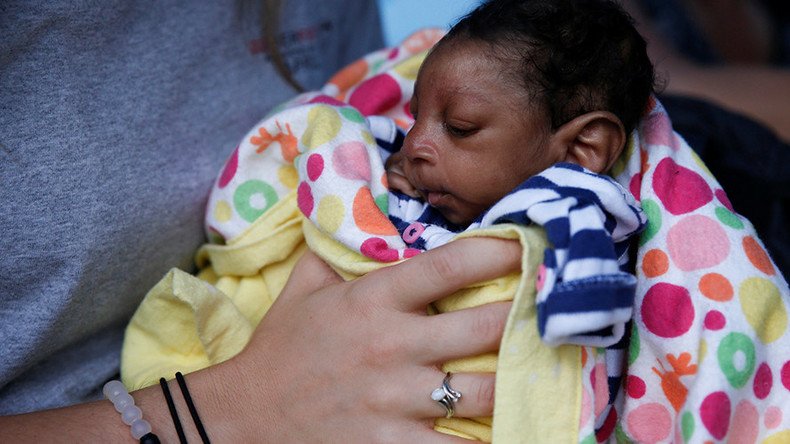Zika found to change human cells – report

Everything we know about Zika fever may change due to a discovery from the University of California, San Diego’s School of Medicine. The disease only recently became public knowledge and has been the subject of a significant amount of scientific study.
One alarming aspect of the Zika virus is the insidious way it can damage neurological and immunological functions and also cause developmental defects in newborn infants, such as microcephaly. But a recent study from UC San Diego could help scientists develop drugs to lower the risk of birth defects in pregnant women who become infected.
Researchers found that the disease actually changes a part of human genetic material to “hide in plain sight,” Tariq Rana, the lead author of the study and a professor of pediatrics at UC San Diego, told USA Today. In a study published in the journal Cell host & Microbe, Rana and her fellow researchers explain that Zika may cause birth defects when it enters a human cell.
’Politics of #Zika are garbage’: Florida lawmaker brings 100 mosquitoes onto House floor pic.twitter.com/EVbDxp5IsX
— RT America (@RT_America) September 7, 2016
Genetic material in human cells is made up of DNA and RNA, but Zika is only made up of RNA. So, when it enters a cell, the body tries to get rid of the infection by modifying viral RNA. As a result, human enzymes are activated, which could possibly impact the cell’s barriers.
The change of the RNA could be related to birth defects that are affiliated with Zika. While the study may not help develop a vaccine any time soon, it could help scientists develop drugs that tackle the way Zika targets and modifies cells.
In addition, Seattle’s Infectious Disease Research Institute received a two-year grant for $491,000 to create an RNA-based vaccine, the Seattle Times reported. Scientists at the Infectious Disease Research Institute (IDRI) are looking to use the genetic information from the virus to create a stronger immune response.
“It’s a way of hijacking the virus’ own machinery to express proteins to make a safe and effective vaccine,” Dan Stinchcomb, the institute’s senior vice president for vaccine development viral disease programs, told the Times.











